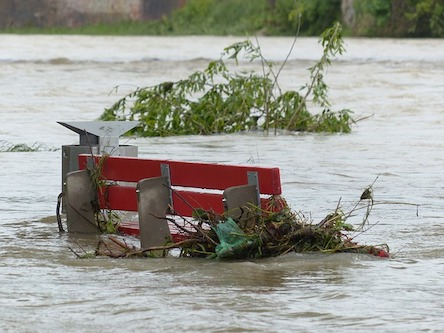Scientists have found liquid water deep under the surface of Mars. They used a special tool on NASA’s Insight lander to listen to vibrations and Mars quakes. This is the first time liquid water has been found on Mars. Before, we only knew about ice at the poles and water vapor in the air.
The Insight mission studied Mars for four years, ending in December 2022. Scientists looked at how fast waves moved through Mars to find water deep underground. This helps us learn about Mars’ climate and how the planet has changed over time. It answers questions about what happened to water on Mars over billions of years.
Mars used to have rivers and lakes on its surface. The new discovery shows there might be a thick layer of water deep underground. This is exciting but also tricky for people who want to live on Mars because the water is hard to reach. The discovery helps us understand Mars’ history and might help us find signs of life deep underground.
Original news source: Reservoir of liquid water found deep in Martian rocks (BBC)
🎧 Listen:
Slow
Normal
Fast
📖 Vocabulary:
| 1 | vibrations | Shaking movements that can be felt or heard |
| 2 | quakes | Sudden shaking of the ground |
| 3 | poles | The top and bottom parts of a planet |
| 4 | vapor | Tiny drops of water in the air |
| 5 | mission | A special job or task that is done |
| 6 | waves | Movements that go up and down or back and forth |
| 7 | climate | The usual weather in a place over a long time |
| 8 | discovery | Finding something new or important |
| 9 | tricky | Difficult to do or understand |
| 10 | surface | The outer layer or top part of something |
| 11 | underground | Below the ground |
| 12 | history | Events that happened in the past |
Group or Classroom Activities
Warm-up Activities:
– Charades
Instructions: Have students act out different words related to the article, such as “Mars,” “water,” “NASA,” “Insight lander,” “liquid,” “ice,” “vibrations,” “quakes,” “climate,” “planet,” “rivers,” “lakes,” “discovery,” or “life.” Other students guess the word being acted out.
– News Summary
Instructions: Divide students into pairs. One student summarizes the article about liquid water on Mars to their partner in their own words. Then, they switch roles. Encourage students to include the main points of the article in their summaries.
– Vocabulary Pictionary
Instructions: Write down key vocabulary words from the article on separate pieces of paper. Each student picks a word and has to draw it while the other students guess the word. Vocabulary words can include “Insight lander,” “vibrations,” “Mars,” “water,” “climate,” “discovery,” “life,” etc.
– Opinion Poll
Instructions: Write discussion questions related to the article on cards, such as “Do you think finding liquid water on Mars is important?” or “Would you like to live on Mars knowing there is water underground?” Have students pick a card, discuss the question with a partner, and then share their opinions with the class.
– Synonym Challenge
Instructions: Write down key words from the article on the board, such as “scientists,” “liquid,” “Mars,” “water,” “climate,” “discovery,” “underground,” etc. Have students work in pairs to come up with as many synonyms for each word as they can in a limited amount of time.
🤔 Comprehension Questions:
1. What did scientists find deep under the surface of Mars?
2. How did scientists listen to vibrations and Mars quakes on Mars?
3. How long did the Insight mission study Mars for?
4. What did scientists learn about Mars’ climate from the study?
5. What did Mars used to have on its surface?
6. Why is it tricky for people who want to live on Mars even though there is water underground?
7. How might the new discovery help us find signs of life on Mars?
Go to answers ⇩
🎧✍️ Listen and Fill in the Gaps:
Scientists have (1)______ liquid water deep under the (2)______ of (3)______. They used a special tool on NASA’s Insight lander to listen to vibrations and Mars quakes. This is the first time liquid water has been found on Mars. Before, we only knew about ice at the poles and water vapor in the air.
The Insight mission studied Mars for four years, ending in December 2022. Scientists looked at how (4)______ waves moved through Mars to find water deep underground. This (5)______ us (6)______ about Mars’ climate and how the planet has changed over time. It answers questions about what (7)______ to (8)______ on Mars over billions of years.
Mars used to (9)______ rivers and lakes on its surface. The new discovery shows there might be a thick layer of water deep underground. This is exciting but also (10)______ for people who want to (11)______ on Mars because the water is hard to reach. The discovery helps us understand Mars’ (12)______ and might help us find signs of life deep underground.
Go to answers ⇩
💬 Discussion Questions:
Students can ask a partner these questions, or discuss them as a group.
1. What do you think it would be like to live on Mars?
2. Do you like learning about planets like Mars? Why or why not?
3. How would you feel if you found out there was water deep under the surface of Mars?
4. Do you think it’s important to study planets like Mars? Why?
5. What do you think scientists can learn from studying Mars’ climate?
6. How do you think the discovery of water on Mars could help us find signs of life?
7. What is a Mars quake? How do you think it feels?
8. Do you think it’s possible for humans to live on Mars one day? Why or why not?
9. How do you think Mars having rivers and lakes in the past is different from now?
10. What would you do if you could visit Mars and see the water underground?
11. Why do you think it’s exciting to discover water on Mars?
12. How do you think finding water on Mars might change our understanding of the planet?
Individual Activities
📖💭 Vocabulary Meanings:
Match each word to its meaning.
Words:
1. vibrations
2. quakes
3. poles
4. vapor
5. mission
6. waves
7. climate
8. discovery
9. tricky
10. surface
11. underground
12. history
Meanings:
(A) Events that happened in the past
(B) Below the ground
(C) The outer layer or top part of something
(D) Sudden shaking of the ground
(E) Finding something new or important
(F) Difficult to do or understand
(G) Tiny drops of water in the air
(H) Movements that go up and down or back and forth
(I) The usual weather in a place over a long time
(J) The top and bottom parts of a planet
(K) Shaking movements that can be felt or heard
(L) A special job or task that is done
Go to answers ⇩
🔡 Multiple Choice Questions:
1. What did scientists find deep under the surface of Mars?
(a) Gold
(b) Diamonds
(c) Liquid water
(d) Oil
2. How did scientists listen to vibrations and Mars quakes on Mars?
(a) Using a telescope
(b) Using a submarine
(c) Using a drone
(d) Using a special tool on NASA’s Insight lander
3. How long did the Insight mission study Mars?
(a) One month
(b) Four years
(c) Ten years
(d) One week
4. What did scientists find on Mars before discovering liquid water?
(a) Volcanoes
(b) Ice at the poles
(c) Sand dunes
(d) Forests
5. What did Mars have on its surface in the past?
(a) Rivers and lakes
(b) Deserts only
(c) Mountains only
(d) Swamps only
6. Why is the discovery of liquid water on Mars exciting but tricky for people who want to live there?
(a) Water is too hot
(b) Water is too cold
(c) Water is hard to reach
(d) Water is contaminated
7. What does the discovery of water deep underground on Mars help us understand?
(a) The Moon’s history
(b) Earth’s history
(c) Venus’ history
(d) Mars’ history
8. What might the discovery of water on Mars help us find signs of?
(a) Life deep underground
(b) Aliens on the surface
(c) Ancient civilizations
(d) Hidden treasure
Go to answers ⇩
🕵️ True or False Questions:
1. Liquid water has been found deep under the surface of Mars.
2. This is not the first time liquid water has been found on Mars.
3. The Insight mission studied Mars for four years and ended in December 2022.
4. Before this discovery, we knew about liquid water on Mars, not just ice at the poles and water vapor in the air.
5. The discovery of water deep underground helps us understand Mars’ history and might lead to finding signs of life.
6. Scientists used a common tool on NASA’s Insight lander to make this discovery.
7. Scientists ignored vibrations and Mars quakes to find the liquid water.
8. Mars used to have rivers and lakes on its surface.
Go to answers ⇩
📝 Write a Summary:
Write a summary of this news article in two sentences.
Check your writing now with the best free AI for English writing!
Writing Questions:
Answer the following questions. Write as much as you can for each answer.
Check your answers with our free English writing assistant!
1. What did scientists find deep under the surface of Mars?
2. How did scientists listen to vibrations and Mars quakes on Mars?
3. How long did the Insight mission study Mars for?
4. What did Mars used to have on its surface?
5. Why is it tricky for people who want to live on Mars even though there is water deep underground?
✅ Answers
🤔✅ Comprehension Question Answers:
1. What did scientists find deep under the surface of Mars?
Scientists found liquid water deep under the surface of Mars.
2. How did scientists listen to vibrations and Mars quakes on Mars?
Scientists used a special tool on NASA’s Insight lander to listen to vibrations and Mars quakes.
3. How long did the Insight mission study Mars for?
The Insight mission studied Mars for four years.
4. What did scientists learn about Mars’ climate from the study?
Scientists learned about Mars’ climate and how the planet has changed over time.
5. What did Mars used to have on its surface?
Mars used to have rivers and lakes on its surface.
6. Why is it tricky for people who want to live on Mars even though there is water underground?
It’s tricky because the water is deep underground and hard to reach.
7. How might the new discovery help us find signs of life on Mars?
The new discovery might help us find signs of life deep underground on Mars.
Go back to questions ⇧
🎧✍️✅ Listen and Fill in the Gaps Answers:
(1) found
(2) surface
(3) Mars
(4) fast
(5) helps
(6) learn
(7) happened
(8) water
(9) have
(10) tricky
(11) live
(12) history
Go back to questions ⇧
📖💭✅ Vocabulary Meanings Answers:
1. vibrations
Answer: (K) Shaking movements that can be felt or heard
2. quakes
Answer: (D) Sudden shaking of the ground
3. poles
Answer: (J) The top and bottom parts of a planet
4. vapor
Answer: (G) Tiny drops of water in the air
5. mission
Answer: (L) A special job or task that is done
6. waves
Answer: (H) Movements that go up and down or back and forth
7. climate
Answer: (I) The usual weather in a place over a long time
8. discovery
Answer: (E) Finding something new or important
9. tricky
Answer: (F) Difficult to do or understand
10. surface
Answer: (C) The outer layer or top part of something
11. underground
Answer: (B) Below the ground
12. history
Answer: (A) Events that happened in the past
Go back to questions ⇧
🔡✅ Multiple Choice Answers:
1. What did scientists find deep under the surface of Mars?
Answer: (c) Liquid water
2. How did scientists listen to vibrations and Mars quakes on Mars?
Answer: (d) Using a special tool on NASA’s Insight lander
3. How long did the Insight mission study Mars?
Answer: (b) Four years
4. What did scientists find on Mars before discovering liquid water?
Answer: (b) Ice at the poles
5. What did Mars have on its surface in the past?
Answer: (a) Rivers and lakes
6. Why is the discovery of liquid water on Mars exciting but tricky for people who want to live there?
Answer: (c) Water is hard to reach
7. What does the discovery of water deep underground on Mars help us understand?
Answer: (d) Mars’ history
8. What might the discovery of water on Mars help us find signs of?
Answer: (a) Life deep underground
Go back to questions ⇧
🕵️✅ True or False Answers:
1. Liquid water has been found deep under the surface of Mars. (Answer: True)
2. This is not the first time liquid water has been found on Mars. (Answer: False)
3. The Insight mission studied Mars for four years and ended in December 2022. (Answer: True)
4. Before this discovery, we knew about liquid water on Mars, not just ice at the poles and water vapor in the air. (Answer: False)
5. The discovery of water deep underground helps us understand Mars’ history and might lead to finding signs of life. (Answer: True)
6. Scientists used a common tool on NASA’s Insight lander to make this discovery. (Answer: False)
7. Scientists ignored vibrations and Mars quakes to find the liquid water. (Answer: False)
8. Mars used to have rivers and lakes on its surface. (Answer: True)
Go back to questions ⇧















